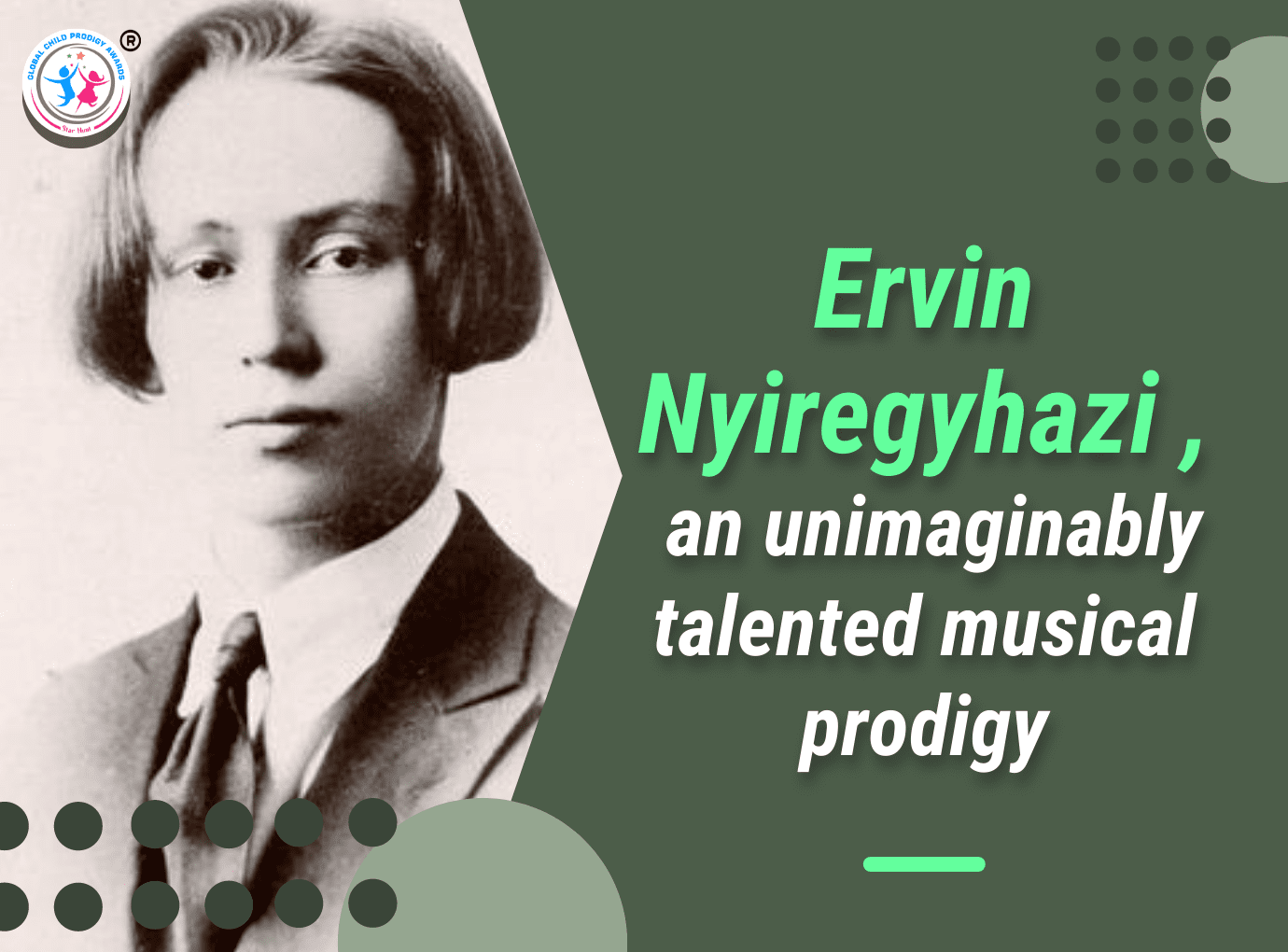Musical prodigies or artistic prodigies are often misinterpreted for being a savant, but Ervin Nyiregyhazi wasn’t one. He was a prodigy. A charming thing about musical prodigies is that when they play. It’s unbelievable how they adapt to music in their childhood, especially when children are just learning to speak. They have a grasp on music; Ervin was one of them.
The Uncommon Journey of Ervin Nyireghyazi:

Ervin was born on 19 January 1903, in Budapest but he stayed mainly in the United States. He didn’t have a typical childhood like most children do, maybe because he was a child prodigy. The child was under observation by a phycologist for 6 years and became a subject of an article too. He started showing his incredible and quite exceptional talent when he wasn’t even one year old. The child tried to sing before he was 1. He could correctly produce tunes that he heard. The talented child started composing by the age of two and was able to play mouth organ perfectly by the age of three. He could identify chords and play by the age of seven.
A disturbing childhood event happened when he claimed that his mother sexually assaulted him. He showed no remorse when she died.
Ervin’s Swing Between Recognition and Criticism:
The child prodigy had a wonderful and fantastic start. He stunned everyone with his brilliance. His presence and performance were even compared to the famous French music composer and pianist Franz Liszt, but soon it all came to an end by the time he was 22 years old. He couldn’t keep up with the contracts and soon started doing private concerts, but that didn’t last either. Arnold Schonberg, a famous Australian music composer first noticed him. Schonberg expressed his feeling of amazement for Ervin’s work as a pianist in a letter to Otto Klemperer, another composer, and orchestral conductor, and said, “For your principal would not be the proper standards to apply. What he plays is an expression in the older sense of the word, nothing else. Such power of expressions I have never heard before.”
Unconventional Style
Ervin’s style of playing the piano was quite distinctive and not conventional. As much as he received praises for his unreal technique of music, received equal criticism too. Most critics praised his “Brilliant technical equipment.” But criticized him as “erratic and misleading .” Often compared him with Liszt. They also called his technique “ridiculously amateurish.”

Significant Recognition
Ervin finally earned significant recognition and work after catching Gregor Benko’s attention, the leader of the International Piano Archives. He got him to record some of Liszt’s recordings. His recordings symbolized rediscovering a romantic piano player who was a prodigious present to the music world.
He also performed as a hand-double for movies and played piano. In “A song to remember”, Ervin played the piano. Later in his life, he only had a few of his published recordings. He never played the piano again before he died in 1987.
Also watch:
Also read: Claudio Arrau: The Chilean Prodigious Pianist

Creative content developer at GCPA

